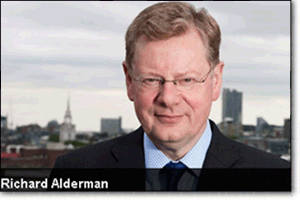- Home
-
News
- Back to parent navigation item
- News
- National Compliance Officer Day 2025
- Accounting & Auditing
- AI
- AML
- Anti-Bribery
- Best Practices
- Boards & Shareholders
- Cryptocurrency and Digital Assets
- Culture
- ESG/Social Responsibility
- Ethics & Culture
- Europe
- Financial Services
- Internal Controls
- Regulatory Enforcement
- Regulatory Policy
- Risk Management
- Sanctions
- Surveys & Benchmarking
- Supply Chain
- Third Party Risk
- Whistleblowers
- Opinion
- Benchmarking
- Certification
- Events
- Research
- Awards
-
CW Connect
- Back to parent navigation item
- CW Connect
- Sign In
- Apply
- Membership
- Contact
THIS IS MEMBERS-ONLY CONTENT
You are not logged in and do not have access to members-only content.
If you are already a registered user or a member, SIGN IN now.
Related articles
-
 Article
ArticleFormer ADM execs inflated operating profits, SEC alleges
2026-02-03T22:57:00Z By Adrianne Appel
Three former executives at Archer-Daniels-Midland intentionally misled investors by inflating the performance of the company’s Nutrition unit, the U.S. Securities and Exchange Commission has alleged.
-
 Opinion
OpinionNational Fraud Enforcement Division: A dangerous escalation of compliance risk
2026-01-29T16:39:00Z By Jaclyn Jaeger
Chief compliance officers and general counsel, beware: The Trump administration’s merging of its whole-of-government enforcement approach with its political agenda forewarns of escalating compliance risk on a national scale.
-
 Article
ArticleKaiser plans pay $556M to settle Medicare upcoding allegations
2026-01-16T17:49:00Z By Adrianne Appel
Kaiser Health affiliates have agreed to pay more than $556 million to settle allegations originally made by whistleblowers that they ignored compliance department warnings and unlawfully reworked diagnoses for Medicare patients in order to receive higher payments from the federal government.
- Terms and Conditions
- Privacy Policy
- Do Not Sell My Info
- © 2025 Compliance Week
Site powered by Webvision Cloud







